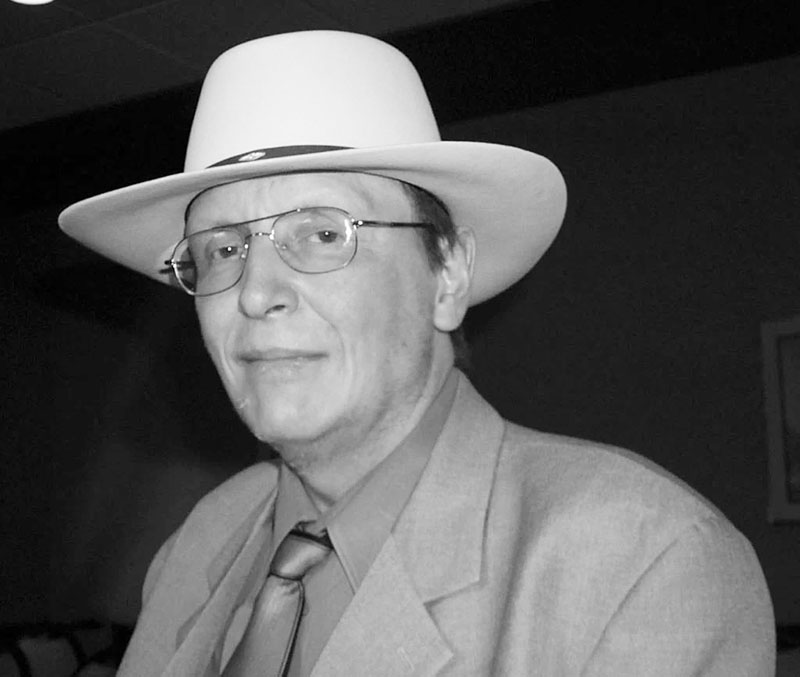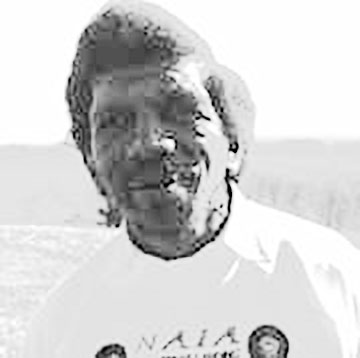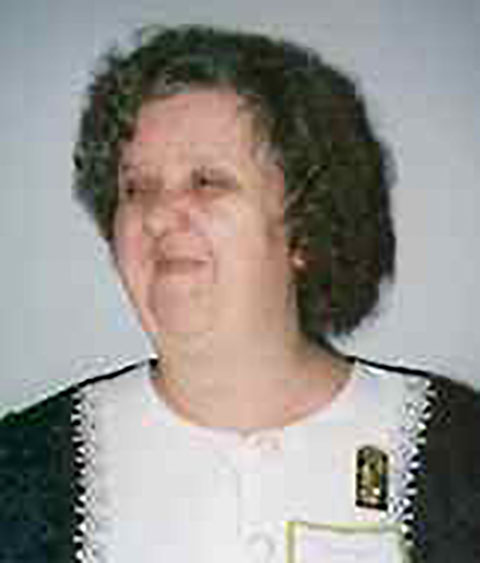Leadership
The self-advocacy movement demonstrates that the notion of "leadership" is not limited to great public speakers or charismatic figures who can individually lead a large group or social movement. Self-advocacy is speaking up for yourself, advocating for your rights, and taking control of your life by making informed decisions. Self-advocacy is also related to self-expression, communicating your thoughts and ideas with confidence. Both can be acts of tremendous leadership.
Many self-advocates, including Nancy Ward, Bernard Carabello, T.J. Monroe, and Barb Goode, fit the traditional definition of a leader. They hold high-profile positions within the movement, often appear on television, and speak to large groups. Some self-advocates demonstrate leadership skills through their active participation in self advocacy groups; serving on an organization's board of directors, governmental affairs committee or public policy committee.
Other self-advocates demonstrate leadership by asking questions and becoming involved in classrooms, churches, neighborhood groups, and even within their own families. People with developmental disabilities are learning and practicing leadership skills, and developing their own leadership styles by becoming knowledgeable about issues and making their own choices about matters that affect them.
Personal Stories Make the Point
Personal stories, told at local group meetings, national conferences, or at legislative meetings and hearings, have a tremendous impact on how we view disability and how people view themselves.
Patrick Worth: Belive in Yourself
"I am from a family of three brothers and five sisters in Nova Scotia. I was put into a class for people who are mentally retarded but I proved them wrong. I did learn. My uncle believed I could read and write and he taught me.
When I was living in the institutions I went to a sheltered workshop. The difference between the workshop and a real job was that in the workshop I worked for eight hours a day all week for $10. People thought that I couldn't do anything so they had me packing dolls. I did really silly, boring jobs. If people keep telling you that you can't then you start believing it all. Geoff, my best friend, failed to follow the rules. The staff decided he should go to a large institution. They put a straitjacket on him and now he's dead. He gave up.
In the workshop I had to sign a document to say that I was permanently unemployable. At the age of thirty-one, I got a job with People First. It was my choice; it was what I wanted to do. It's an office job but also involves lots of traveling. I travel and talk to people in the community who have learning difficulties. I tell them stories.

Pat Worth
They don't have friends and I bring them faith and hope. A real job is going to work where people call you an employee. It's getting a real check that you can live on. No one has the right to tell you that you are unemployable.
We want to be considered as average employees, trained on the job. Yes, it may take us a little longer, but so what? Heck with that!
People First helped me. It's a matter of human spirit. You can't live without it. Maybe I'd be dead if I was still in the institution. People First stands for active involvement, citizens, real jobs, doing real work, respect, being seen as people with power over our lives, learning new things, making friends. We say look at our abilities, not our disabilities, and we want to share our vision with you. We are people first. We do not want to be poor all our lives. We want to be part of the community.
People First taught me what real self-advocacy means. It means having a real job and having a real home. I don't want to be labeled anything but "a human being;" that's what I am.
Everyone wants to live in the community and have a job of their own choosing. We have joined the Employment Equity Coalition and joined in a rally on Capitol Hill. We said that we didn't want sheltered workshops anymore.
We've taken on other issues, like opposing sterilization. The case of "Eve" went to the Canadian Supreme Court and People First members went to the Court to support her.
Believe in yourself and people will believe in you. I can now do so many things that I wouldn't have thought I would be able to do. We have a vision, real goals and ideas. We can make decisions; we don't need to be talked at. Sure we need help sometimes – but not people telling us what to do. We can contribute and we want the community to listen.
Patrick Worth lives in Toronto, Canada.
Russell Daniels: Inside and Out of the Insitutions
"My name is Russell Daniels. I was 12 years old when I was sent to a state school. When I left I was 28 years old. Now, I'm 50 years old. I went in April of 1958. It was a rainy day. I went to the institution because I had problems with going to school and stuff like that. You know, when you didn't like school that's what happened. And that's one reason why I had to go to the institution, because I was a problem child.
I wasn't allowed to see my family the first week. After a while, they'd start letting you have visitors. In those days, they let you go out for the day but when you came back you would be searched. You couldn't have money, watches, rings, or anything. They'd take everything away because those were the rules and regulations.
I'm really proud to be out and I never want to go back to any institution at all. It was terrible. They treat you like dirt. You don't get treated like a human being. They treat you mean, like, you know, you do something, they slap you. "Do this, and do that. Sit down and don't say a word." I wasn't abused, but other people were.
So, when I got about 17, I took off. Packed up my lunch and took off and went into the woods and went on the highway and started walking. Then I got picked up by the police. They brought me back and put me in seclusion.

Russell Daniels
After I got used to being there, I went to school and I had a job. I used to help clean the place up and do dishes and set tables. They didn't pay you. That was a job, and that's what you had to do.
You'd have to get up at six in the morning, get dressed, make sure everybody else was up, make your bed, and then everybody went downstairs in the day hall. They were ready to go down for breakfast at seven o'clock. We all had to be in line. The second shift came in, they went outdoors and played; you know, play baseball or something like that. Lunch time was about noon, and then they came in about five o'clock. Everybody came in, washed their face and hands, lined up and got a tray and got their food in line and sat down. At night they watched TV until nine, which was bedtime. Everything shut off, the lights off and that's it.
Now, I live like a king. I'm happy I do what I want, go where I want, I can come back when I want. Nobody tells me, "You can't go here, you can't go there." 'Cause that's annoying. I live by myself. I pay my own rent. I pay my bills. I work at the Senior Center. I have been working there for about three years. I'm a janitor. I clean up the place and lock up and help the elderly people out. You know, help them downstairs and stuff.
I love it. And they all love me.
I have friends that I visit in the institution. They tell me they want to leave because they saw me leaving. They said, "Well, gee how come this guy is leaving?" So I said, "All you have to do is be patient. You'll be next."
Russell Daniels is a board member of the self-advocacy organization Open Door Club. He lives in Belchertown, Massachusetts.
Gloria Steinberg: From Assembly Line to Activism
When I moved from Hibbing to Minneapolis in 1968, I thought I was on my way to a new career. My social worker in Hibbing told me that I should get job training, and Minneapolis had schools for this. I was living with my parents in Hibbing at the time, and helped them with raising my younger brother, Duane. I liked working with children, and dreamed of one day working in a day care. I followed my social worker's advice, and moved to Minneapolis. I lived in a group home with over 100 people.
I was nervous at first. I didn't know what to expect. It was really tough living away from home for the first time. I was living at Outreach Center, what you might call a mini-institution. I didn't really like living there.
Instead of getting real job training, I went to a sheltered workshop. They "evaluated" me and said that I couldn't get a competitive job because the dexterity in my fingers was not quick enough. They told me "you'll have to stay in the workshop for the rest of your life."
I hoped I would be able to develop my skills as a child care worker. Instead, my job was to put hooks in straps, hour after hour, all day long. I also sealed thermostat covers in a plastic package. We would work on a line, where one person would put in one part, another person would do something else, and the part would move down the line. I didn't like this work because this wasn't where my expertise was. This work made me feel like I was good for nothing.

Gloria Steinbring
Around this time I met my future husband, Dean Steinbring. Dean also lived at Outreach and worked at Opportunity Workshop. He felt the same way I did about work. Some people liked their jobs, but Dean and I didn't.
When we started getting involved with each other, the people at the workshop separated us. We had to work in different rooms. We got married in 1974 and moved into our own apartment.
In 1975, some people from the local ARC came to our workshop to talk about voter registration. We learned about self-advocacy, and met other people who were speaking up for themselves. People at the workshop kept telling us "you'll be here the rest of your lives." They kept pounding this into us. But when I started going to self-advocacy meetings, I learned that I had rights, and that I could stand up for myself. I was tired of being treated like a kid by the workshop.
After 11 years at the workshop, I took some time off and I asked my social worker for an independent evaluation. I learned that I was capable of working in competitive jobs and that I could have worked with children. My social worker thought the workshop should have given me these kinds of jobs a long time ago.
I went back to the workshop in the fall, and told them I'd only work if they paid me minimum wage, which was $2.35 per hour. They told me they could only pay me eighty-eight cents per hour. They said they were a rehabilitation facility, and that they were training me to do what I would do in a factory job. I told them I didn't want a factory job. In eleven years, they didn't teach me anything. I told them to go to hell, and quit the workshop. I started devoting my time to Advocating Change Together (ACT), a self-advocacy group I helped found.
Since that time, I think supported employment has made things better, but there are still people being trained for jobs they don't want. Who is this helping? We need to work on changing attitudes and telling people about our abilities. We need to make our own decisions.
Gloria Steinbring is a founding member of Advocating Change Together (ACT), a self-advocacy organization in St. Paul, Minnesota. Gloria lives in Minneapolis, Minnesota.
